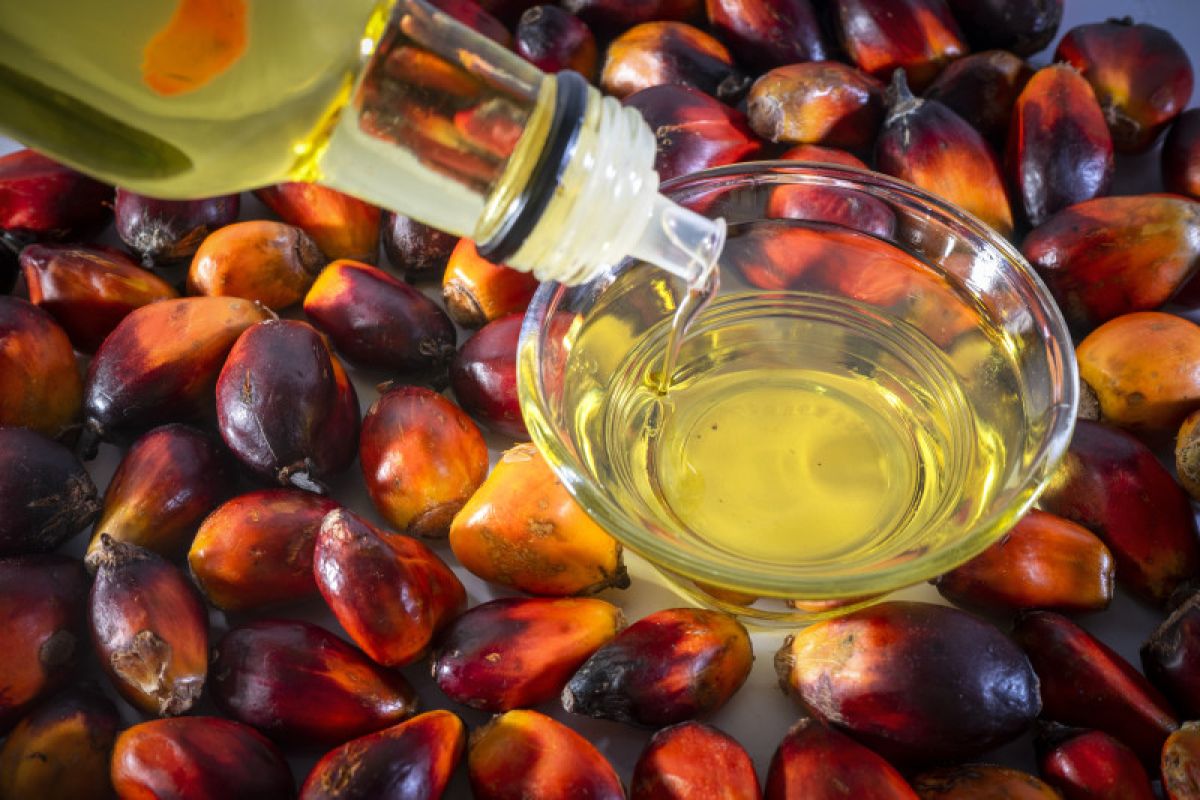5 Amazing Ways How Palm Oil is Extracted
Written By James Morgan
SEO Meta Description: Discover the process of how palm oil is extracted and its benefits for barbecue enthusiasts. Learn all about the steps involved in palm oil extraction.

Introduction
Palm oil is a versatile and widely used oil that has found its way into various culinary practices, including barbecuing. But have you ever wondered how is palm oil extracted? This article will take you through the intriguing journey of palm oil extraction, shedding light on its importance and applications for barbecue enthusiasts.

1. What is Palm Oil?
Palm oil is a type of vegetable oil derived from the fruit of oil palm trees. It is known for its high stability and heat resistance, making it a favorite ingredient among barbecue enthusiasts. Let's explore how it's obtained through various methods.

2. The Importance of Palm Oil in Barbecuing
Palm oil is a game-changer when it comes to barbecuing. Its high smoke point makes it ideal for grilling and frying, ensuring your meat gets that perfect sear. Moreover, it adds a rich and unique flavor that enhances the overall taste of your barbecue dishes.

3. Types of Palm Oil
3.1 Crude Palm Oil (CPO)
Crude Palm Oil is the raw, unrefined oil extracted from the fruit of oil palm trees. It undergoes further processing for various applications.
3.2 Refined Palm Oil
Refined Palm Oil goes through additional refining stages to remove impurities, resulting in a clear and stable oil used in cooking and frying.
4. The Palm Oil Extraction Process
4.1 Harvesting the Fruits
The journey begins with the harvesting of fresh fruit bunches (FFBs) from oil palm trees. These bunches are carefully cut and transported to the processing facility.
4.2 Sterilization
In this step, the FFBs are subjected to high-temperature steam to sterilize them, preventing microbial activity and loosening the fruits from the bunches.
4.3 Stripping
Once sterilized, the fruits are stripped from the bunches, leaving behind the empty bunches.
4.4 Digestion
The stripped fruits are then crushed in a digestion chamber to break down the oil-bearing cells. This process releases the oil for extraction.
4.5 Pressing
The digested fruits are pressed to extract the crude palm oil. The pressing process separates the oil from the fiber and nut.
4.6 Clarification and Purification
The extracted oil undergoes a clarification process to remove impurities, followed by purification to ensure a high-quality end product.
5. The Role of Palm Oil in Barbecue Marinades
Palm oil can be a wonderful addition to barbecue marinades. Its high temperature tolerance ensures that your marinades penetrate the meat without burning, resulting in juicy and flavorful barbecue dishes.
6. Benefits of Using Palm Oil in Barbecue
- High Smoke Point: Palm oil can withstand high temperatures without breaking down, making it excellent for grilling and frying.
- Rich Flavor: The unique flavor of palm oil enhances the taste of your barbecue, adding depth to your dishes.
- Stable Cooking Oil: Palm oil's stability ensures it has a long shelf life, making it a reliable choice for barbecue enthusiasts.
7. Ethical Considerations and Sustainability
While palm oil has its benefits, it's essential to consider the environmental impact of its production. Look for sustainable palm oil certified by organizations such as the Roundtable on Sustainable Palm Oil (RSPO).
8. Where to Buy Palm Oil
Palm oil is readily available in most grocery stores and online. Look for brands that offer sustainably sourced palm oil to support ethical practices.
FAQs
Q: Is palm oil healthy?
A: Palm oil contains healthy fats and is a good source of vitamin E, making it a healthy addition to your diet when used in moderation.
Q: Can I use palm oil for high-temperature cooking?
A: Yes, palm oil's high smoke point makes it perfect for grilling, frying, and other high-temperature cooking methods.
Q: What is the difference between crude and refined palm oil?
A: Crude palm oil is the raw, unrefined oil, while refined palm oil goes through additional processing to remove impurities and achieve a clear, stable oil.
Q: Is palm oil sustainable?
A: While palm oil production has environmental impacts, opting for sustainably sourced palm oil certified by organizations like RSPO can support ethical practices.
Q: How does palm oil benefit barbecue enthusiasts?
A: Palm oil's high smoke point and rich flavor make it an excellent choice for grilling and frying, enhancing the taste and quality of barbecue dishes.
Q: Where can I buy palm oil?
A: Palm oil is available in most grocery stores and online. Look for sustainably sourced options to support ethical practices.
Conclusion
Palm oil is an essential ingredient for barbecue enthusiasts, offering high temperature tolerance and rich flavor that enhances the overall barbecue experience. By understanding how palm oil is extracted, you can appreciate its journey from fruit to table and make informed choices about the products you use. Don't forget to look for sustainable palm oil options and enjoy the benefits it brings to your barbecue adventures.
As an Amazon Associate, I earn from qualifying purchases.



